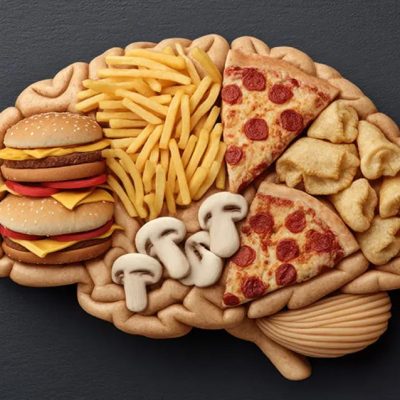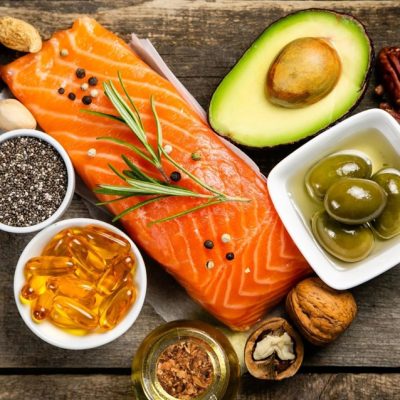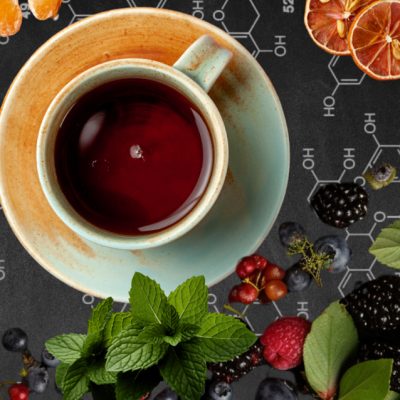Luo Han Guo (Siraitia grosvenorii), more commonly known as monk fruit, is a long living vine that belongs to the gourd family, the same plant group as cucumbers and squash. It is native to southern China, where it has been used for centuries in traditional foods and remedies. In recent years, monk fruit has drawn modern scientific attention because it contains high levels of … [Read more...]
Nutrition & Wellness

Scientists are Rethinking Bamboo as a Powerful New Superfood
Bamboo is known as the fastest growing plant on the planet, with some species capable of growing up to 90cm in a single day. While China and India are the largest producers and bamboo shoots are already common in many Asian cuisines, the findings suggest bamboo could become an important food option for diets around the world. Nutritional Profile of Bamboo Shoots Bamboo … [Read more...]
The Bottled Water Everyone Trusts may be the Riskiest
A new study led by Washington State University researchers in Guatemala found that drinking water sources widely believed to be clean and safe often contain harmful bacteria. The research focused on Guatemala's Western Highlands, where scientists compared what people think about their drinking water with what laboratory testing actually revealed. Many residents viewed … [Read more...]
New Study Shows Some Plant-Based Diets May Raise Heart Disease Risk
Previous studies have indicated that eating large amounts of ultra-processed foods is linked with a higher likelihood of developing cardiovascular diseases. Other research has found that diets centered on plant-based foods can lower this risk when those foods offer balanced nutrition and are consumed in appropriate proportions. To explore how nutrition relates to … [Read more...]
Blocking One Enzyme may Break the Link Between Alcohol and Liver Disease
Scientists have identified an unexpected link between the way the body processes sugar and the development of alcohol addiction. This connection also points to a promising therapeutic target for treating alcohol-associated liver disease (ALD) and alcohol use disorder (AUD). A study published in Nature Metabolism by researchers at the University of Colorado Anschutz reports … [Read more...]
Rare Desert Berry Could Transform Diabetes Treatment
In what could mark a major step forward for diabetes care, scientists have found extraordinary health benefits in a little-known desert plant. The fruit of Nitraria roborowskii Kom, long used in traditional medicine, showed strong potential to fight insulin resistance and restore healthy metabolism in diabetic mice. The plant extract not only helped stabilize blood sugar but … [Read more...]
The Bright Colors in Your Food May be Harming Your Kids
Nearly one in five packaged foods and drinks in the United States contain synthetic food dyes, according to new research that analyzed 39,763 grocery store products. The study was recently published in the Journal of the Academy of Nutrition and Dietetics. Synthetic dyes are often added to make foods look more appealing, especially products aimed at children, but a growing … [Read more...]
Ultra-Processed Foods Quietly Push Young Adults Toward Prediabetes
More than half of the calories people consume in the United States come from ultra-processed foods (UPFs), which include items such as fast food and packaged snacks that tend to contain large amounts of sodium, added sugars and unhealthy fats. While studies in adults have firmly connected these foods to type 2 diabetes and other chronic conditions, far less is known about how … [Read more...]
Bananas Could be Ruining Your Smoothie’s Health Benefits
Smoothies are a quick and delicious way to load up on fruits and vegetables, but some ingredient combinations may not be as healthy as they seem. Scientists from the University of California, Davis, discovered that the types of fruits blended together can change how much nutrition your body actually absorbs. Their research, published in the Royal Society of Chemistry's … [Read more...]
Sunflowers May be The Future of “Vegan Meat”
Researchers at the Institute of Food Technology (ITAL) and the University of Campinas (UNICAMP) in São Paulo, Brazil, working with colleagues from the Fraunhofer IVV Institute in Germany, have developed a new type of food made from sunflower flour that can serve as a substitute for meat. The process begins by extracting oil from sunflower seeds. To make the resulting flour … [Read more...]
Fruit Might be the Surprising Key to Healthier Lungs
Eating fruit may reduce the effects of air pollution on lung function, according to research presented at the European Respiratory Society Congress in Amsterdam, the Netherlands. The study was presented by Pimpika Kaewsri, a PhD student from the Centre for Environmental Health and Sustainability at the University of Leicester, UK. She explains: "Over 90% of the global … [Read more...]
Junk Food can Scramble Memory in Just 4 Days
A new study from UNC School of Medicine researchers, published in Neuron, reveals a unique look at how junk food rewires the brain's memory hub - leading to risk of cognitive dysfunction. This new research opens the door to early interventions that can prevent even long-term memory loss associated with obesity. Led by UNC School of Medicine's Juan Song, PhD, principal … [Read more...]
The Vitamin D Mistake Weakening Your Immunity
Taking vitamin D2 might lower the body's levels of the more efficient form of vitamin D, vitamin D3, according to new research from the University of Surrey, John Innes Centre and Quadram Institute Bioscience. Many people take vitamin D supplements to support their bone and immune health and meet the UK government recommendation of 10 micrograms (µg) each day, especially during … [Read more...]
Why Ultra-Processed Foods aren’t the Real Villain Behind Overeating
Ultra-processed foods (UPFs) have become public enemy number one in nutrition debates. From dementia to obesity and an epidemic of "food addiction," these factory-made products, including crisps, ready meals, fizzy drinks and packaged snacks, are blamed for a wide range of modern health problems. Some experts argue that they're "specifically formulated and aggressively marketed … [Read more...]
Scientists Reveal How Breakfast Timing may Predict how long you live
As we age, what and how much we eat tends to change. However, how meal timing relates to our health remains less understood. Researchers at Mass General Brigham and their collaborators studied changes to meal timing in older adults and discovered people experience gradual shifts in when they eat meals as they age. They also found characteristics that may contribute to meal … [Read more...]
Eating Mediterranean could be the secret to healthy gums
Findings from a King's College London study indicate that people not following a Mediterranean - style diet tended to have more severe gum disease, especially if they consumed red meat frequently. In these patients, the researchers observed higher levels of circulating inflammatory markers, such as Interleukin-6 (IL-6) and C-reactive protein (CRP). However, patients whose … [Read more...]
Why Ultra-Processed Diets Make You Gain Fat Even Without Extra Calories
An international team of scientists has now discovered that people gain more weight on an ultra-processed diet compared to a minimally processed diet, even when they eat the same number of calories. The study in humans also revealed a diet high in ultra-processed foods introduces higher levels of pollutants that are known to affect sperm quality. The findings were published in … [Read more...]
Beet Juice Secretly Helps Older Adults Lower Blood Pressure in Just Two Weeks
Researchers at the University of Exeter conducted the study, published in the journal Free Radical Biology and Medicine, comparing responses between a group of older adults to that of younger adults. Previous research has shown that a high nitrate diet can reduce blood pressure, which can help reduce risk of heart disease. Nitrate is crucial to the body and is consumed as a … [Read more...]
Mysterious “Little Red Dots” Could Reveal How the First Black Holes Formed
In the study, published in The Astrophysical Journal Letters, Authors Fabio Pacucci and Abraham (Avi) Loeb suggest that these galaxies are the result of very slowly spinning dark matter halos, an extremely rare cosmic structure. These faint, compact objects, discovered in deep space images from the James Webb Space Telescope (JWST), have challenged scientists' understanding … [Read more...]
A Startling Omega-3 Deficiency May Explain Women’s Alzheimer’s Risk
Omega fatty acids could protect against Alzheimer's disease in women, new research has found. Analysis of lipids - fat molecules that perform many essential functions in the body - in the blood found there was a noticeable loss of unsaturated fats, such as those that contain omega fatty acids, in the blood of women with Alzheimer's disease compared to healthy … [Read more...]
Scientists Just Found a Sugar Switch That Protects Your Brain From Alzheimer’s
Glycogen is typically thought of as a reserve energy source stored in the liver and muscles. While small amounts also exist in the brain, particularly in support cells called astrocytes, its role in neurons has long been dismissed as negligible. "This new study challenges that view, and it does so with striking implications," says Professor Pankaj Kapahi, PhD, senior scientist … [Read more...]
Is Cheese Secretly Fueling Your Nightmares? Science Weighs
Scientists have found that eating too much dairy could ruin your sleep. Researchers questioned more than 1,000 students about the quality of their sleep, their eating habits, and any perceived link between the two, and found a strong association between nightmares and lactose intolerance — potentially because gas or stomach pain during the night affects people's … [Read more...]
This Overlooked Supplement Could Help You Think Sharper and Age Better
Creatine, the supplement popular with athletes for its ability to help build strength and power, is increasingly being recognized for its broad health benefits. The compound's usefulness extends well beyond the gym, according to Dr. Richard Kreider, professor and director of the Exercise & Sport Nutrition Lab at Texas A&M University. Kreider has spent more than 30 … [Read more...]
Seek Medical Advice Before Attempting Water-Only Fasting Diets, Experts Warn
Experts at the University of Sydney are urging people, especially those with existing heart or vascular conditions, to seek medical advice before attempting to lose weight using water-only fasting diets. The study, published in Molecular Metabolism, was conducted by a team of researchers in Australia, Italy and the US. It examined the impact of prolonged fasting -- a diet … [Read more...]
Tea, Berries, Dark Chocolate and Apples could Lead to a Longer Life Span, Study Shows
New research has found that those who consume a diverse range of foods rich in flavonoids, such as tea, berries, dark chocolate, and apples, could lower their risk of developing serious health conditions and have the potential to live longer. The study was led by a team of researchers from Queen's University Belfast, Edith Cowan University Perth (ECU), and the Medical … [Read more...]
How Fatty Meals Rapidly Weaken Our Gut Defenses
A study led by researchers from WEHI (Melbourne, Australia) has become the first in the world to unravel the immediate effects of a high-fat diet on our gut health. The pre-clinical study found even a few meals high in saturated fats can cause inflammation in the body, despite physical symptoms -- in the form of chronic inflammation -- potentially taking years to … [Read more...]
Molecules in Blood and Urine could Reveal How Much Ultra-Processed Food You Eat
Ultra-processed foods (UPFs) account for more than half of calories consumed in the average American diet, yet their impact on human health remains unclear, in part because it is so difficult to accurately track exactly how many UPFs people eat. In the new study, researchers analyzed blood and urine samples from 718 older adults, alongside detailed dietary recalls, to … [Read more...]
A healthy diet in childhood is linked to starting menstrual periods later, regardless of BMI or height
Eating a healthy diet as a child is linked to girls having their first menstrual period at an older age than those who consumed a less healthy diet, according to a new study published today (Wednesday) in Human Reproduction. The findings remained unaltered by the girls' body mass index (BMI) or height, both of which have been associated with the earlier onset of … [Read more...]
Running on Empty: Poor Nutrition Increases Injury Risk for Female Athletes
In a systematic review of nearly 6000 runners, researchers examined the link between diet and exercise-related injury among adult distance runners. The study found that lower energy and fat intakes were strongly associated with a higher risk of injury in female runners. The study also found that a low-fibre diet increased the likelihood of bone stress injuries in both … [Read more...]
Healthy Eating in Midlife Linked to Overall Healthy Aging
Maintaining a healthy diet rich in plant-based foods, with low to moderate intake of healthy animal-based foods and lower intake of ultra-processed foods, was linked to a higher likelihood of healthy aging -- defined as reaching age 70 free of major chronic diseases and with cognitive, physical, and mental health maintained, according to a new study by researchers at Harvard … [Read more...]
- 1
- 2
- 3
- …
- 44
- Next Page »





























